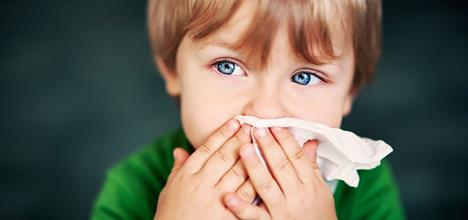If your child suffers from allergies, you know how challenging it can be to manage their symptoms and ensure their well-being. Allergies can range from mild to severe, affecting a child’s daily life and overall health. As a parent, you play a crucial role in helping your child cope with allergies effectively.
Understanding Allergies
Before diving into management strategies, it’s essential to understand what allergies are. Allergies occur when the immune system overreacts to substances (allergens) that are typically harmless. Common allergens include pollen, dust mites, pet dander, certain foods, and insect stings.
Identifying Allergy Triggers
The first step in managing allergies is identifying the specific triggers that cause your child’s allergic reactions. This may involve keeping a diary of symptoms and activities to pinpoint patterns and potential allergens. Consulting with an allergist or pediatrician can also help in conducting allergy tests to determine specific triggers accurately.
Creating an Allergy-Friendly Environment
Once you know the triggers, you can take steps to create an allergy-friendly environment at home. This may include:
1. Reducing Allergen Exposure: Implement measures to reduce exposure to allergens, such as using allergen-proof covers on mattresses and pillows, regularly cleaning carpets and upholstery, and keeping pets out of bedrooms if pet dander is a trigger.
2. Improving Indoor Air Quality: Use air purifiers with HEPA filters to remove allergens from the air. Keep windows closed during high pollen seasons and use air conditioning to filter outdoor air.
3. Managing Dust and Mold: Regularly clean and vacuum your home to reduce dust mites and mold. Use dehumidifiers in damp areas like basements to control moisture levels.
Medication and Treatment
Depending on the severity of your child’s allergies, Dr. Sulaniya may recommend various medications and treatments:
1. Antihistamines: These medications help relieve symptoms like itching, sneezing, and runny nose caused by allergies.
2. Nasal Corticosteroids: These nasal sprays reduce inflammation in the nasal passages, relieving congestion and other allergy symptoms.
3. Allergy Shots (Immunotherapy): In cases of severe allergies, immunotherapy may be recommended. This involves regular injections of allergens to desensitize the immune system over time.
Lifestyle and Dietary Adjustments
In addition to medical treatment, lifestyle and dietary adjustments can also help manage allergies:
1. Healthy Diet: Encourage a balanced diet rich in fruits, vegetables, and whole grains. Certain foods, like those high in omega-3 fatty acids, may have anti-inflammatory effects that can benefit allergy sufferers.
2. Regular Exercise: Physical activity can boost the immune system and help alleviate allergy symptoms. However, outdoor activities during high pollen seasons should be limited or done with precautions.
3. Stress Management: Stress can exacerbate allergy symptoms. Teach your child relaxation techniques such as deep breathing, yoga, or meditation to manage stress levels.
Regular Follow-ups and Monitoring
It’s crucial to schedule regular follow-up appointments with Dr. Sulaniya to monitor your child’s allergy management progress. Adjustments to medication, treatment plans, or lifestyle recommendations may be necessary based on how your child responds to the management strategies.
By working closely with Dr. Pawan Sulaniya and implementing these strategies, you can help your child effectively manage their allergies and improve their quality of life. Remember, every child’s allergy management plan may vary, so personalized care and ongoing support are key to success.






Comments